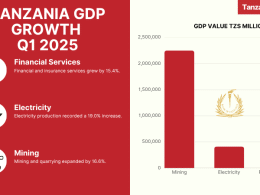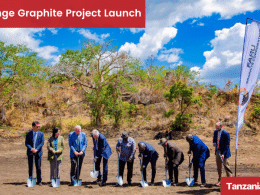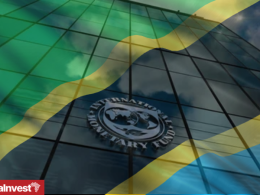The Mining Commission of Tanzania issued 8,501 mining licences between July 2024 and March 2025, according to Minister of Minerals Anthony Mavunde in his budget presentation to Parliament in Dodoma on May 2, 2025.
The figure represents progress towards the annual target of 10,294 licences for the period.
Among the licences issued were 1 special mining licence (SML), 25 mining licences (MLs), 396 prospecting licences (PLs), and 6,227 primary mining licences (PMLs).
In addition, the Commission issued 548 dealer licences (DLs), 1,290 broker licences (BLs), 1 refining licence (RFL), and 13 processing licences (PCLs).
Between July 2024 and March 2025, 118 prospecting licences and 41 medium-scale mining licences were issued default notices for breaching licence conditions, such as failure to pay annual fees or develop the licensed areas.
Subsequently, 5 prospecting licences and 9 mining licences were revoked after their holders failed to address the violations.
Minister Mavunde also announced that 65 new areas have been allocated for small-scale miners across mineral-rich regions, including Geita, Mara, Mbogwe, Kahama, Chunya, and Songwe.
Additionally, 972 copper concentrate samples from Bulyanhulu Gold Mine, Katavi Mining Company Limited, Jiuxing (TZ) Mining Limited, and ZEM (T) Company Limited were tested, along with 4,011 samples submitted by private clients, to support informed mining and trading decisions.
The investigations generated TZS 296.7 million in government fees.
Separately, the Ministry of Minerals has issued default notices to 95 holders of large- and medium-scale licences who have not commenced operations within the 18-month legal timeframe.
Minister Mavunde confirmed that these licensees must justify their inactivity by May 13, 2025, or face cancellation of their permits.
He noted that seven of these licences represent an estimated combined investment potential of TZS 15 trillion.
He warned that dormant investments would no longer be tolerated and that some companies were unjustifiably citing ongoing discussions with the government as a reason for delays.
According to the minister, responses received will be evaluated, and if valid, may lead to withdrawal of the notice or the imposition of conditions.
If no satisfactory response is received, the licences will be revoked.










